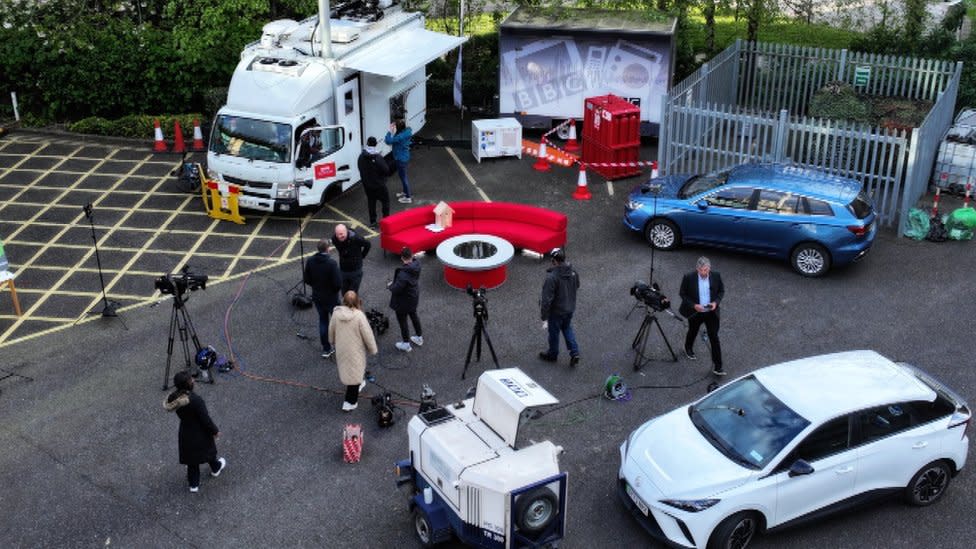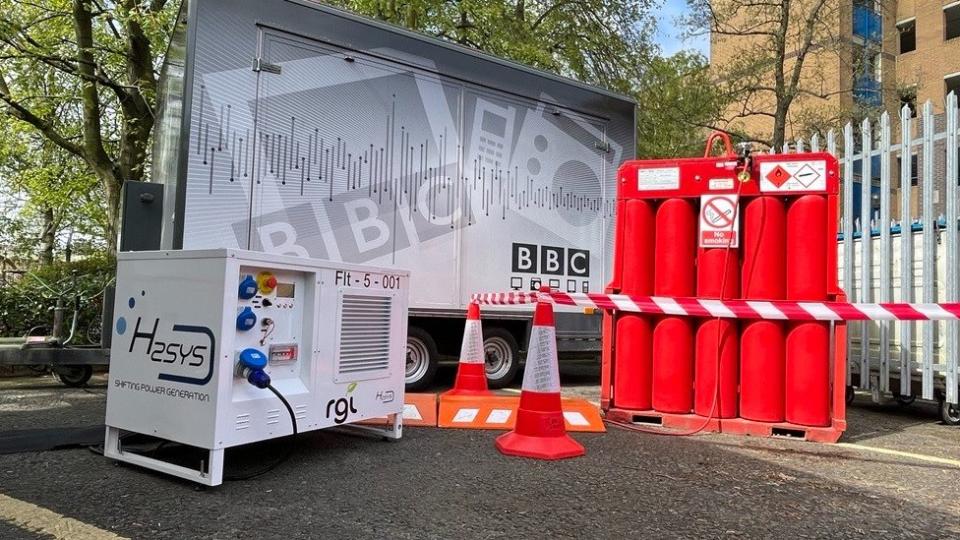BBC South Today news programme highlights carbon use

Regional television news programme BBC South Today has broadcast a special edition with a focus on reducing its own carbon footprint.
The programme's outside broadcast segment was powered by a hydrogen, rather than diesel, generator.
It featured reports on lifestyle choices that individuals can make to lessen carbon emissions.
The programme's production methods were awarded Albert certification for sustainability.
The Bafta-run scheme offers a carbon calculator used by broadcasters and media organisations, including the BBC, in a bid to help the industry tackle climate change.
A live page on the BBC News website began at 15:00 BST, bringing updates from the programme and a behind-the-scenes look at what BBC South staff have been doing to lower their own carbon footprints.
South Today had already taken steps to improve its impact on the environment - including using rechargeable batteries for items such as radio microphones and presenter talkback units.
Reporters for Tuesday's Earth Week special were allocated stories closest to where they lived.
Staff travelled by bike, foot or used Electric Vehicles (EVs), and some production staff worked from home, reducing carbon emissions from vehicles.
The programme featured an overview of the issues surrounding climate change and offered ideas on simple, inexpensive changes individuals can make in their everyday lives.

For the live transmission at 18:30 BST, the main studio at BBC Broadcasting House in Southampton was switched off, along with much of the broadcast gallery.
Instead a satellite truck and a support van provided the majority of the technical facilities used to broadcast the programme - and instead of using an electricity-sapping video server, reports were played off a laptop.
The only waste emission from the hydrogen generator the programme used was water. While hydrogen itself is considered a clean fuel, the process of making it usable also requires energy.
'Food for thought'
This energy can either use renewable sources like wind, water or solar, known as green hydrogen, or natural gas, with the resulting carbon emissions captured and stored underground, known as blue hydrogen.
The Albert certification score for the special broadcast worked out at 83%, compared with a usual score of 76% for a typical South Today programme.
That equates to a 0.06 tonne reduction in carbon emissions.
BBC South operations manager Marcus Gaines said: "The logistics of making this all happen has proved challenging and enlightening.
"From the fine detail of ensuring camera crews and reporters get to their locations in the most sustainable way, to working out how much energy the studio typically uses.
"It really has proved food for thought on how we can reduce our carbon impact."
South Today on BBC One on Tuesday at 18:30 or on BBC iPlayer.
Follow BBC South on Facebook, X, or Instagram. Send your story ideas to south.newsonline@bbc.co.uk or via WhatsApp on 0808 100 2240.


